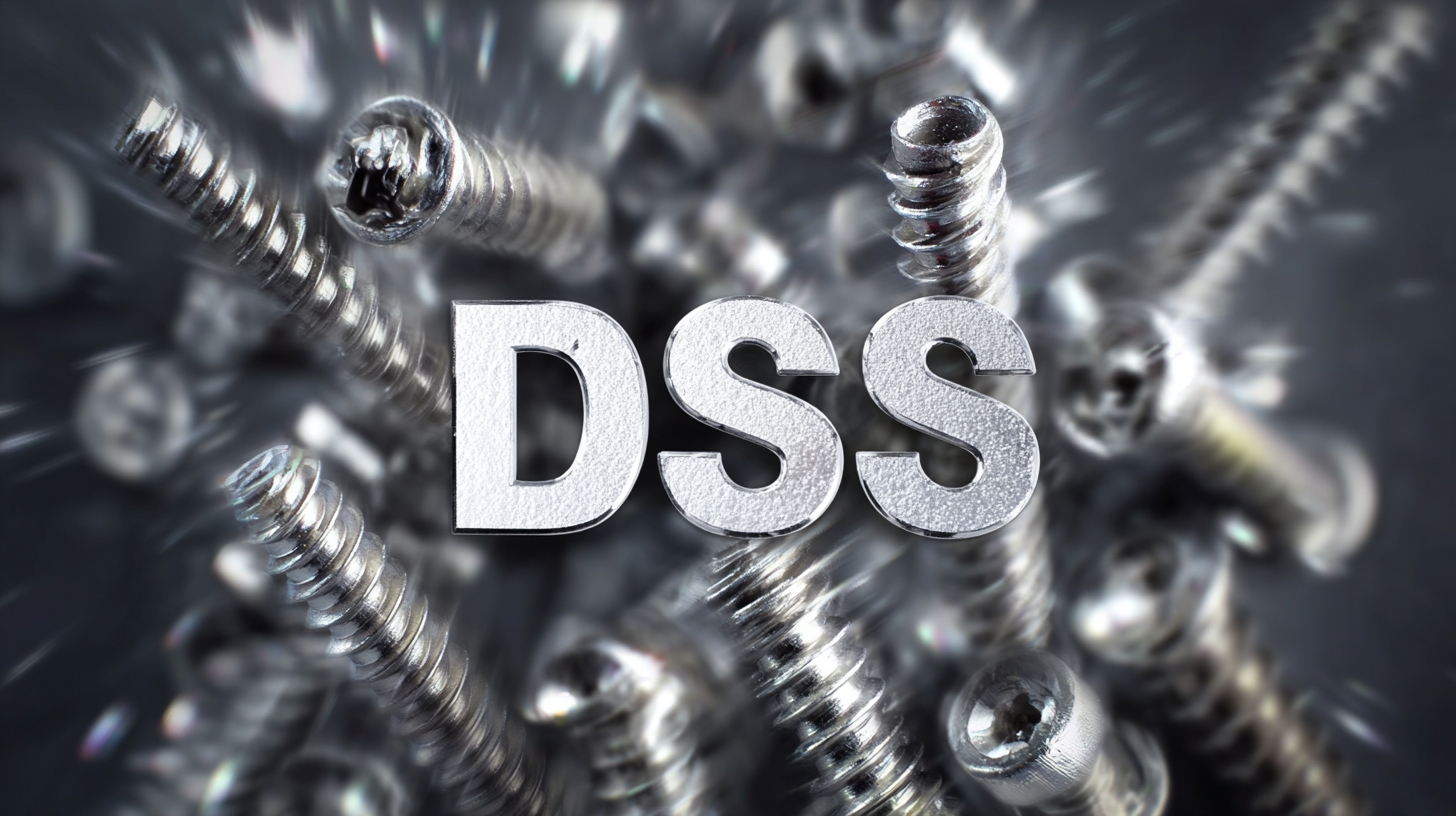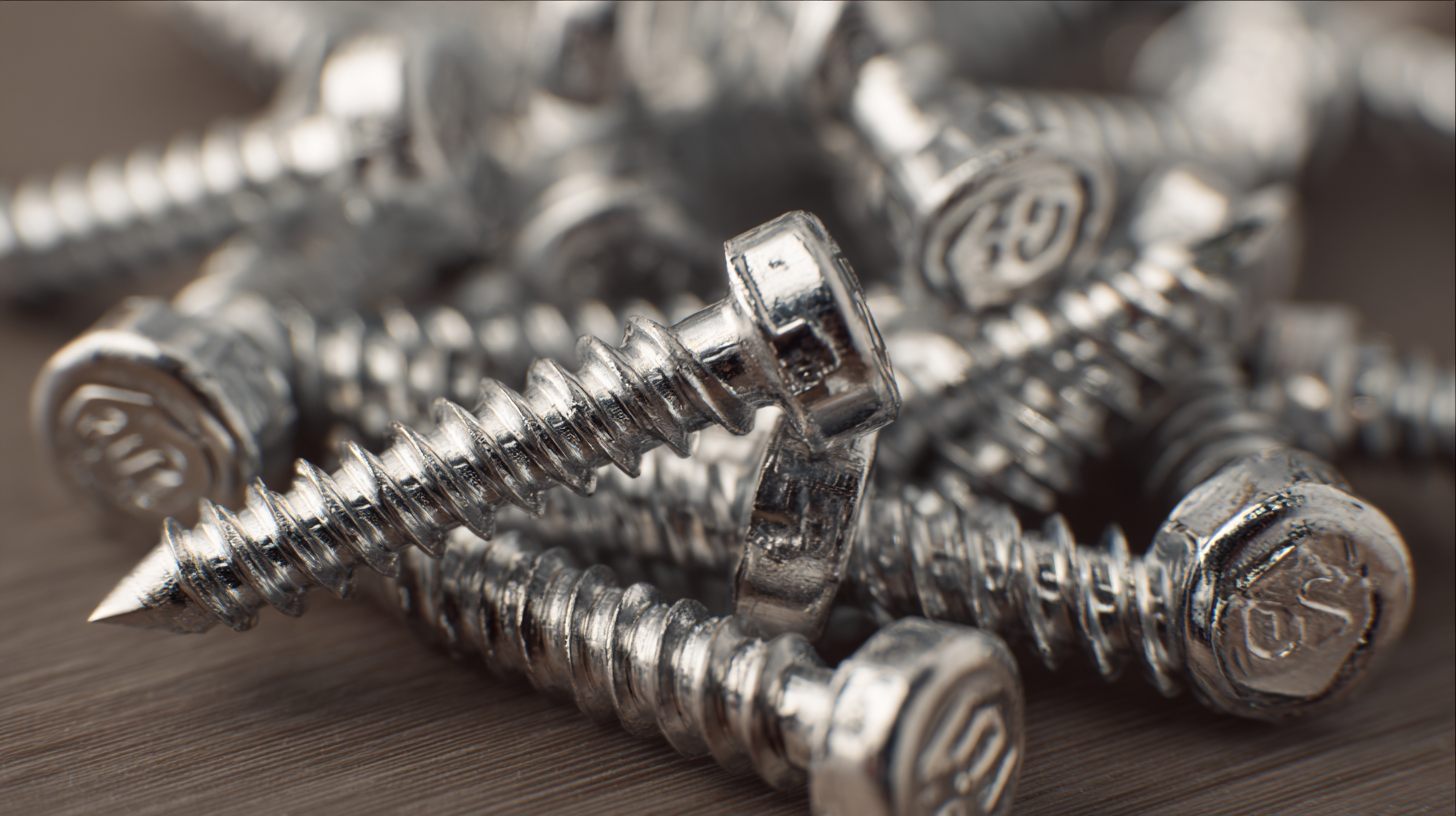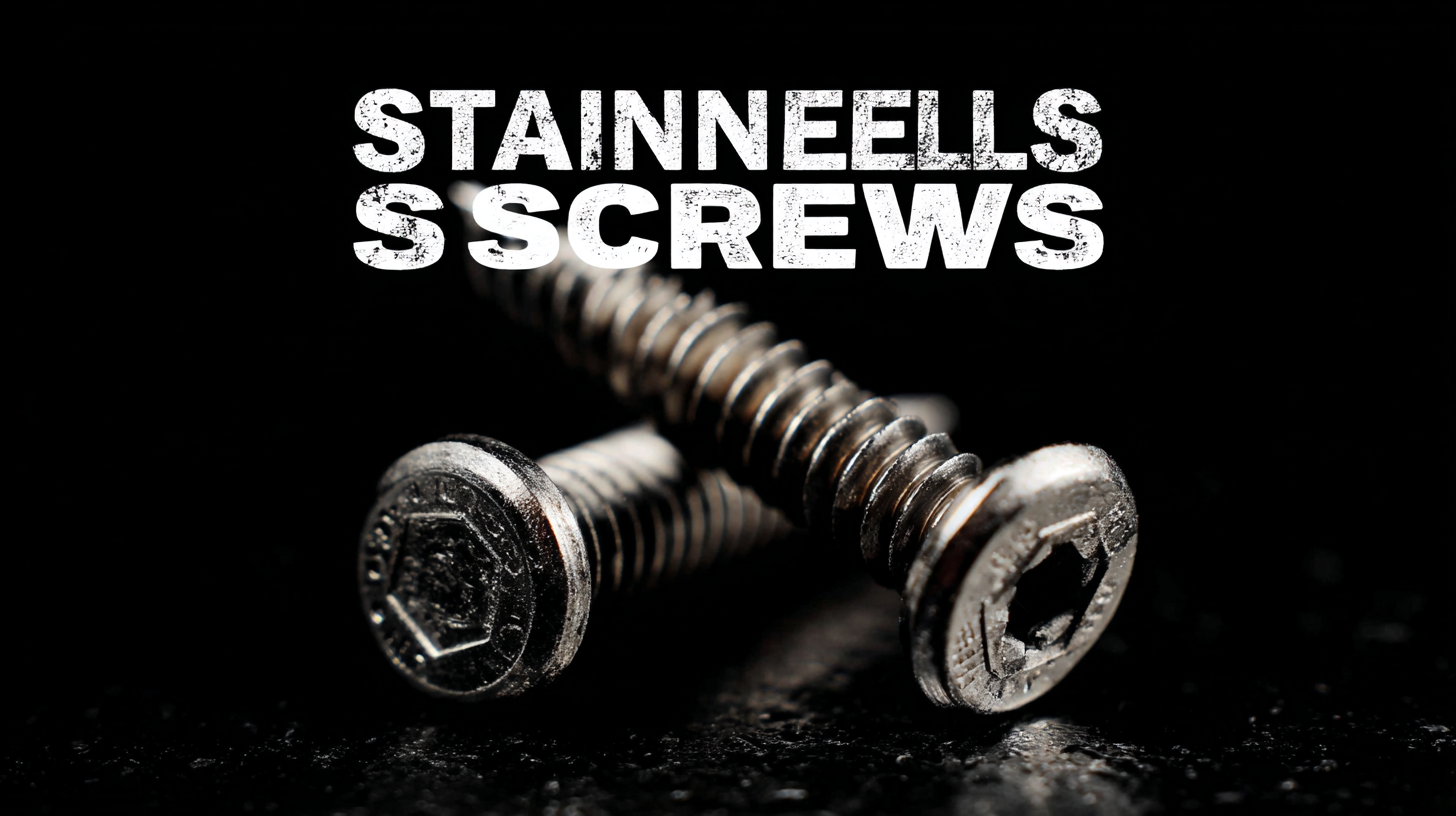
2023's Definitive Guide to Importing Top 10 Certified Stainless Steel Screws Worldwide
In today's global market, the demand for high-quality Stainless Steel Screws is on the rise, driven by a variety of industries including construction, automotive, and manufacturing. According to a report from Grand View Research, the global stainless steel fasteners market is projected to reach $18.13 billion by 2025, with a compound annual growth rate (CAGR) of 5.7%. This growth is fueled by the increasing need for corrosion-resistant and durable fasteners that can withstand harsh environmental conditions. As businesses continue to seek reliable suppliers, understanding the nuances of importing certified stainless steel screws becomes essential.

This guide aims to provide a comprehensive overview, highlighting the top ten suppliers worldwide and offering insights into the various types and applications of stainless steel screws, ensuring that you can make informed decisions in this critical aspect of manufacturing and assembly.
Understanding the Importance of Certified Stainless Steel Screws in Global Imports
When it comes to global imports, the importance of using certified stainless steel screws cannot be overstated. These screws are essential in ensuring the integrity and durability of various applications, from construction to manufacturing. According to a report by MarketsandMarkets, the global stainless steel fasteners market is projected to reach USD 22.9 billion by 2025, indicating a robust demand for high-quality materials. This growth underscores the significance of certifications, as they guarantee that the screws meet stringent quality standards and can withstand harsh environments.
Certified stainless steel screws are engineered to resist corrosion, extreme temperatures, and mechanical stress, making them suitable for diverse applications. A study conducted by the International Fastener Institute highlights that improperly specified fasteners can lead to structural failures, costing industries millions in repairs and downtime. Thus, importing certified screws not only complies with international regulations but also mitigates risks associated with material failure. As businesses increasingly seek reliable components, the shift toward certified products is becoming a key factor in global supply chain efficiency and product safety.

Key Factors to Consider When Choosing Stainless Steel Screws for Your Needs
When choosing stainless steel screws for your specific applications, several key factors should be evaluated to ensure optimal performance and longevity. The grade of stainless steel is crucial; for instance, AISI 304 is widely used for its excellent corrosion resistance, making it suitable for general applications, while AISI 316 offers superior oxidation resistance, ideal for marine environments. According to a report by Mordor Intelligence, the global stainless steel fasteners market is projected to reach USD 16.94 billion by 2026, driven by increasing demands in construction and automotive industries.
One important tip is to assess the environmental conditions where the screws will be used. External factors such as humidity, salinity, and temperature can significantly affect the corrosion resistance of stainless steel. Selecting the correct coating, such as passivation or galvanization, can enhance the screws' lifespan significantly. Additionally, consider the head style and drive type; different applications may necessitate specific designs to ensure ease of installation and reliable fastening.
Another essential factor is the thread size and type, which directly impacts load distribution and holding strength. Industry studies suggest that using screws with tighter threads can provide better compliance with relevant mechanical standards, necessary for structural applications. Always refer to ASTM standards to ensure your selection meets the required safety and quality benchmarks.
2023's Definitive Guide to Importing Top 10 Certified Stainless Steel Screws Worldwide
| Screw Type | Material Grade | Corrosion Resistance | Typical Applications | Strength (ksi) |
|---|---|---|---|---|
| Lag Screws | A2 (304) | Moderate | Wood Construction | 70 |
| Machine Screws | A4 (316) | High | Marine Environments | 80 |
| Self-Tapping Screws | A2 (304) | Moderate | Sheet Metal | 75 |
| Hex Bolts | A4 (316) | High | Bolting Applications | 90 |
| Sheet Metal Screws | A2 (304) | Good | General Uses | 70 |
Top 10 Certified Stainless Steel Screw Manufacturers to Watch in 2023
As we delve into 2023, the demand for certified stainless steel screws continues to grow, driven by advancements in industries such as construction, automotive, and manufacturing. According to a report by MarketsandMarkets, the global stainless steel fasteners market is expected to reach USD 20.9 billion by 2026, growing at a CAGR of 5.2%. This surge in demand is largely attributed to the rising preference for corrosion-resistant materials, particularly in harsh environments.
Among the top players in the stainless steel screw manufacturing sector, several companies stand out for their remarkable product quality and certification compliance. Companies like Fastenal and Hilti have established robust supply chains that meet the rigorous standards set by organizations like ASTM International and ISO. Furthermore, emerging manufacturers, such as SWM International, are gaining traction for their innovative approaches to production and commitment to sustainability, aligning with the industry's shift towards eco-friendly practices. As we progress through 2023, keeping an eye on these top 10 manufacturers will be crucial for businesses seeking reliable and certified fastener solutions.
2023's Definitive Guide to Importing Top 10 Certified Stainless Steel Screws Worldwide
Essential Documentation and Compliance for Importing Stainless Steel Screws
 When it comes to importing stainless steel screws, understanding the essential documentation and compliance requirements is crucial. First, importers must be aware of the necessary certifications that ensure the screws meet international quality and safety standards. This often includes obtaining the ISO 9001 certification, which demonstrates a company’s commitment to quality management systems. Additionally, ensuring that products comply with specific regulations such as ASTM International standards can prevent costly delays or violations at customs.
When it comes to importing stainless steel screws, understanding the essential documentation and compliance requirements is crucial. First, importers must be aware of the necessary certifications that ensure the screws meet international quality and safety standards. This often includes obtaining the ISO 9001 certification, which demonstrates a company’s commitment to quality management systems. Additionally, ensuring that products comply with specific regulations such as ASTM International standards can prevent costly delays or violations at customs.
Moreover, importers should prepare for thorough inspections and proper documentation to facilitate a smooth import process. This includes having a detailed commercial invoice, packing list, and bill of lading. Ensuring that these documents accurately describe the goods being imported, including material composition and country of origin, is vital. Some countries may also require specific import licenses or preferential certificates, depending on trade agreements. Investing the time to understand and organize these compliance measures will ultimately streamline the import process and support successful business operations.
Tips for Ensuring Quality Control During the Importing Process
When importing certified stainless steel screws, maintaining stringent quality control is essential to ensure that products meet industry standards and buyer expectations. One critical step in this process is conducting thorough research on your suppliers. Always verify their certifications and reviews from other customers to assess their reliability. Regular audits of production facilities can also provide insight into their quality control practices, ensuring they adhere to international standards.
Another effective strategy is to implement a comprehensive inspection protocol. Prior to shipment, consider employing third-party inspection services to evaluate product quality. This includes checking for consistency in size, finish, and material properties. Additionally, establishing clear communication and guidelines with your supplier about your quality expectations can help mitigate misunderstandings. With the right approach, you can streamline the importing process and secure high-quality stainless steel screws that meet your specific needs.
